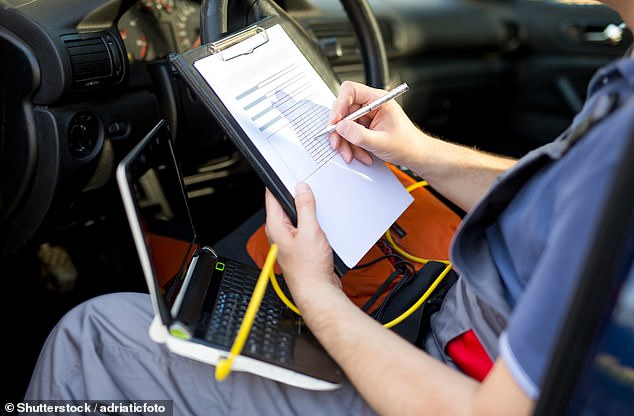What you need to know before taking your car to a garage for maintenance or repairs
Taking your car to the garage for maintenance or repairs is never fun. It is difficult, time-consuming and often expensive.
It can also be a source of confusion, as many non-petrolheads feel out of their comfort zone talking about a machine they can drive but don’t know how to operate.
Without the same level of knowledge as the garage, or full knowledge of your legal rights, it’s easy to feel left behind and ripe for being ripped off.
Always tell your garage in writing what work you want to have carried out, and be as specific as possible
But having a basic understanding of the law and knowing the key do’s and don’ts will help you move forward.
Here’s what you need to know before you take your car in for its next repair or service…
Express terms: Tell the garage what you want and set a timeline
Before you start work, tell the garage what you want. These instructions are called “expressive conditions.”
Where possible, record these express terms in writing. It makes it much easier if there is a dispute or question about the work later.
More generally, you can express an overarching wish such as; ‘the car does not start properly and cuts out when it is running; Can you please solve this for me?’
But it’s best to be as specific as possible and relate the instructions to a particular error (or errors) that need to be fixed.
This could be, for example, ‘installing new spark plugs’
It’s even better if you can specify the brand required for the different parts, but that’s not a necessity. You can also indicate whether you are satisfied with second-hand parts in good condition or not.
The more general you are about the repairs – you give permission to do everything that is necessary – the more difficult it will be to argue later.
If you need your car back by a certain date or time, make that clear, but give the garage plenty of time to complete the job.

Ask for a written quote and don’t be British when it comes to money!
Implicit terms: What must be a given
‘Implied terms’ are the background assumptions that repairs should be carried out with care, skill and within a reasonable time.
Parts must be of good quality, fit properly and correspond to the description given.
These are your basic legal rights, which we will come back to later.
Ask for a written quote
Don’t join without getting a written quote – that’s the hard rule.
The quote should indicate approximately how much it will cost to repair your car and the timeline.
If the garage does not do this voluntarily, make sure you request this before agreeing to work commencing.
You can also set a written spending limit at the garage, which they may not exceed without first contacting you and asking your permission.
Sometimes the garage can only provide an initial estimate to view the car and see what needs to be done.
Don’t expect this to be free, but make sure they call or email you once they identify the problem and get your permission to proceed with the updated estimate.

Ask around at several garages to get quotes, as each garage has its own labor costs, overhead costs and parts prices, so estimates may vary
Receive multiple quotes
Just like when you’re getting construction or plumbing work done, multiple quotes are the smart way to go when your car needs repairs.
Hourly rates vary, as do operating costs and parts prices, so different garages will quote different amounts.
Ask the garage what hourly rate they charge – don’t be British about it!
Go to a few different garages to determine a fair price and then decide based on price. Or, if there isn’t much in it, the deciding factor could be reputation or the specialist skills on offer.
How binding is a quotation?
A quotation is usually only an estimate of the price and is therefore not binding. You may pay a little more or, if you’re lucky, a little less, but it should be approximately what it says.
Sometimes you can price it exactly and contract it firmly, but this is quite rare and usually for very special work.

The garage may make a diagnosis and then legally charge you for any additional extra work required if you do not request a quote
No quote? What is a reasonable price?
If you don’t get a quote, a garage is legally entitled to charge you a ‘reasonable’ price for any work done properly.
The law of the land: your basic rights to be aware of
As a customer who brings your car in for maintenance or repairs, you are legally protected by your consumer rights.
Generally these include:
- If no price has been agreed in advance, the garage must charge a reasonable amount;
- They need to install replacement parts that are in good condition, can get the job done and will last a decent amount of time;
- They must use reasonable care and skill and carry out the work within a reasonable time frame.
Authorization:
- If the garage carries out work for which you have not given permission, it is not entitled to compensation for this work;
- If parts have been replaced without permission, the garage must remove these parts and reinstall the old parts. If they cannot do this, the garage will have to cover the costs.
Delays
How long is a piece of rope?
Delays in car repairs are quite common because there are so many variables.
From previously unseen faults to parts shortages, there are quite a few reasons why engines take so long to be repaired.
However, if you have set a time period and the garage is far away, you have options:
- Try to set a new completion date initially
- Ask the garage for a replacement car
- If you rent a car, tell the garage as you may be able to claim the additional car rental costs
- You can return the car when it is legal and safe on the road, and bring it back in for the additional work to be done at a later date

If you wish to dispute work, start with a clear and calm conversation with the garage and only resort to legal proceedings as a last resort.
Disputing work and whether you will get your car back
If you are not satisfied with the repairs carried out, discuss this with the garage first.
Legal proceedings are expensive, time-consuming and difficult, so always a last resort.
You can also have it examined by another garage.
If the garage does not participate, you can check whether they are a member of a trade association and if so, ask the association for help.
The garage has the right to keep your car until all work has been paid for.
Unless you are in legal proceedings, you must pay the bill, but write on the garage copy ‘paid under protest’. This allows you to get your car back, but continue to challenge the garage.
In this case, you can inform the garage in writing that you intend to take your car to another garage to obtain quotes for repairing the defects. The additional costs will then be charged to the garage that caused the error.
If you repossessed your car and only paid because you discovered new problems or defects, the garage is liable, but you must prove that it is a related problem caused by the garage.
Unfortunately, it could just be a coincidence.
Arbitration and going to court – the last resort
Hopefully it doesn’t come to that, but if all else fails, you can go to arbitration through the trade association or take the garage to court.
Most trade associations offer a low-cost arbitration service, in which an external investigator is brought in to rule in favor of the garage or car owner.
There are a few caveats to this method: the garage must agree to it, the decision is binding so you can’t dispute it later, and you won’t get the compensation back if you lose.
If you decide to go to court, you do not need a lawyer for claims under €3,000 and you can go to the Small Claims Court.
If the repair bill is more than £3,000 you will need a solicitor to advise you.
Some links in this article may be affiliate links. If you click on it, we may earn a small commission. That helps us fund This Is Money and keep it free to use. We do not write articles to promote products. We do not allow a commercial relationship to compromise our editorial independence.
